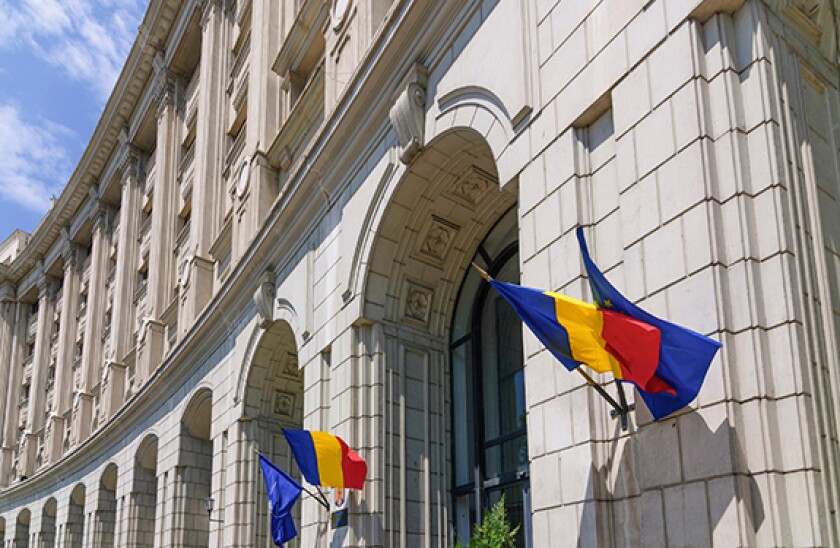Romania is collecting feedback from bond investors this week on their appetite for several new instruments it might issue to fund infrastructure spending, including blue bonds, social bonds and ESG (environmental, social and governance) bonds.
Alin Andries, the secretary of state who oversees the debt management office, said Romania was not yet structuring these labelled deals. But he “wants investors to know we are open to diversify into new markets and new instruments on a forward-looking basis”.
Part of his mission this week at the IMF and World Bank Annual Meetings is to conduct a non-deal roadshow to gauge investor enthusiasm for new securities.
“Economic growth in Romania during the last decade was higher than other peer countries, and our objective is to continue to implement policies that will maintain and support the sustainable economic growth,” Andries said. “We want to continue to invest in infrastructure, not only in highways and railways, but also in education and health infrastructure, to provide better public services to our citizens. The level of investments in Romania was very high during the last year.”
The Baa3/BBB-/BBB- rated country has had a huge year for international bond issuance. It has raised €10.2bn in euros and $6.1bn in dollars on public markets, plus another €716m via private placements.
Its strategy in borrowing those amounts has been to simultaneously make strides in diversifying its bond market access. This year the sovereign printed both its first Samurai note in the Japanese market and its first green bond.
Since it has prioritised growth, however, the country’s budget deficit remains high. Last year it was 6.6% and Andries said that in the short term he was not expecting it to fall to 3% — the number required by the European Commission for joining the euro, one of Romania’s goals.
“Our medium term fiscal plan is that after seven years, we expect the deficit to be below 3% and at that point we can discuss adherence to the eurozone,” Andries said. “It is an important objective for us, but is not a short term one. Our focus before that, though, is becoming a full member of the OECD [Organisation for Economic Co-operation and Development] in 2026, which will put us on the right track. We’re hoping that by the end of 2025 we can finalise this discussion.”
